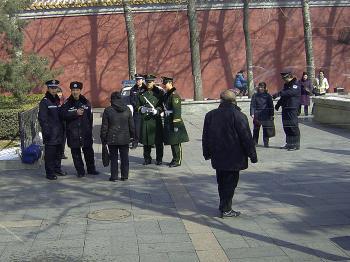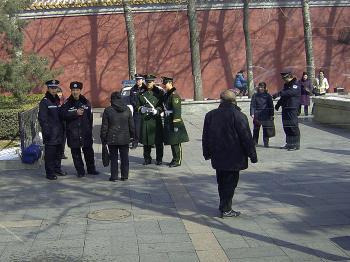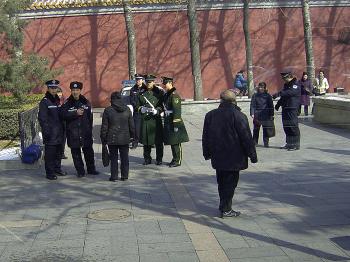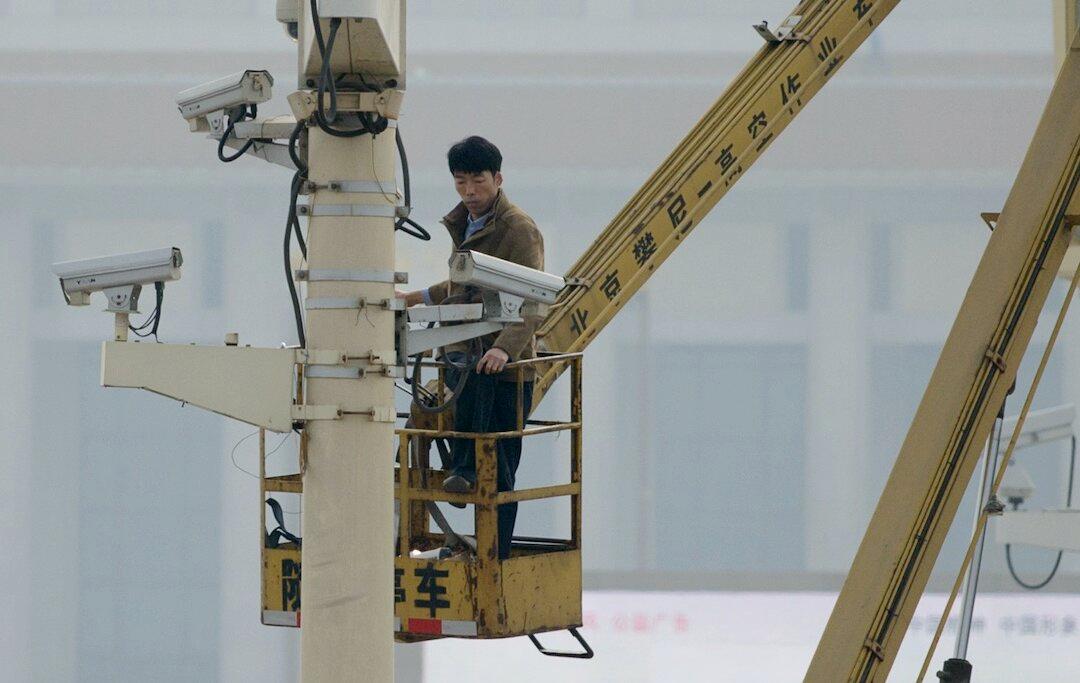Security level for the two upcoming annual parliament sessions was raised to the highest level on March 1, with a tri-level defense line formed by 700,000 people.
According to the state-run Xinhua Net, a security plan called “Hu Cheng He Action” (i.e., “Operation Moat”) will implement a dynamic, round-the-clock control in eight districts in Beijing by deploying police and armed patrol vehicles.
The heavy guard may be used to stop desperate appellants, who intend to spell out their grievances, and in reality want to catch a “people’s representative” of either the Chinese People’s Political Consultative Conference (CPPCC) or the National People’s Congress (NPC).
A female Beijing resident surnamed Wu told The Epoch Times, “There are many policemen patrolling the streets, riot police and also anti-riot vehicles. The area around the conference hall has been put under martial law.” In addition to this, community guards wearing red armbands are also patrolling residential areas.
“The police searched bags around Tiananmen Square, and would immediately take away anyone carrying petition material. There are several buses waiting to transport those captured.” said Wu.
According to the state-run Xinhua Net, a security plan called “Hu Cheng He Action” (i.e., “Operation Moat”) will implement a dynamic, round-the-clock control in eight districts in Beijing by deploying police and armed patrol vehicles.
The heavy guard may be used to stop desperate appellants, who intend to spell out their grievances, and in reality want to catch a “people’s representative” of either the Chinese People’s Political Consultative Conference (CPPCC) or the National People’s Congress (NPC).
Bags Searched and Petitioners Abducted
A female Beijing resident surnamed Wu told The Epoch Times, “There are many policemen patrolling the streets, riot police and also anti-riot vehicles. The area around the conference hall has been put under martial law.” In addition to this, community guards wearing red armbands are also patrolling residential areas.
“The police searched bags around Tiananmen Square, and would immediately take away anyone carrying petition material. There are several buses waiting to transport those captured.” said Wu.






